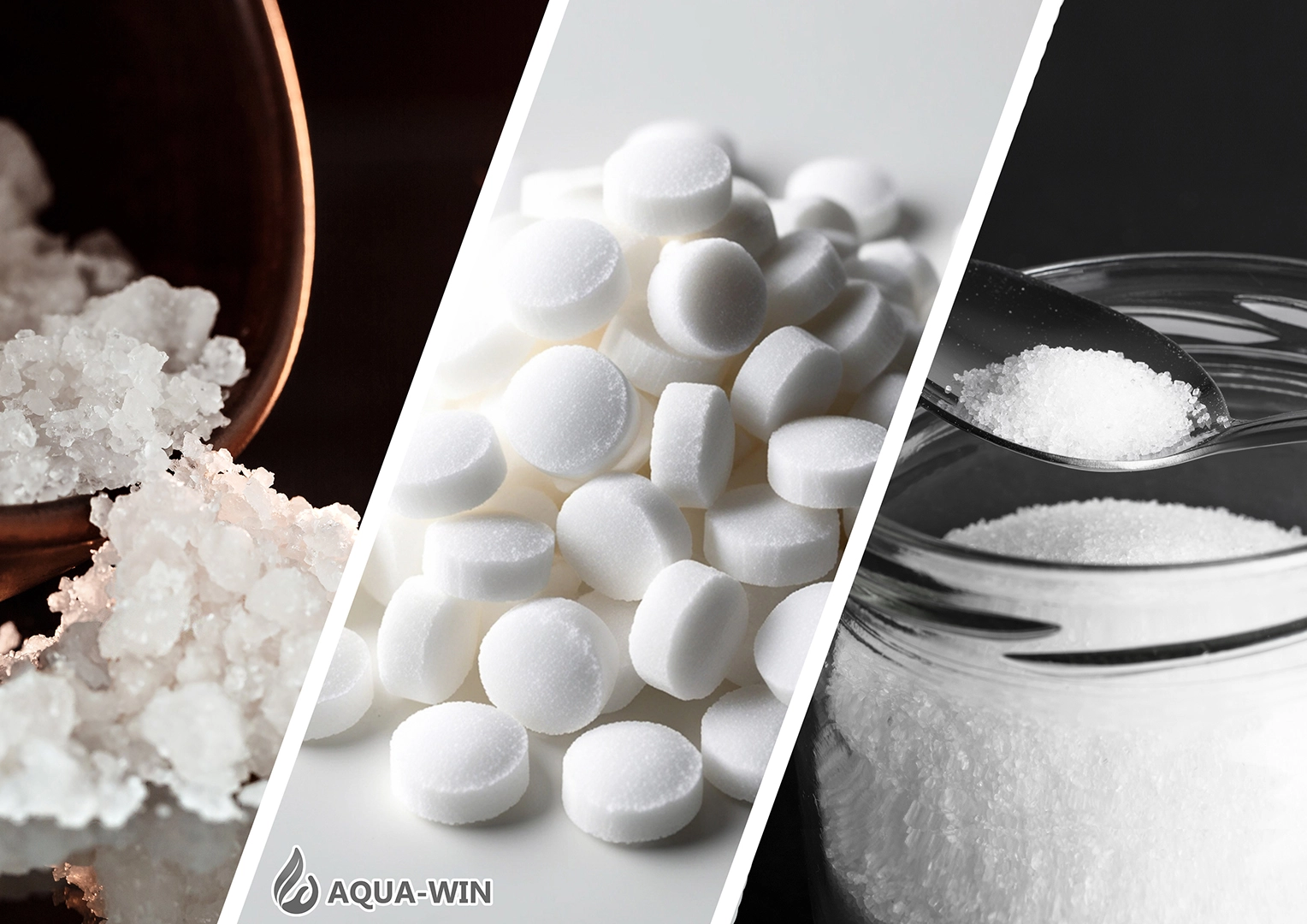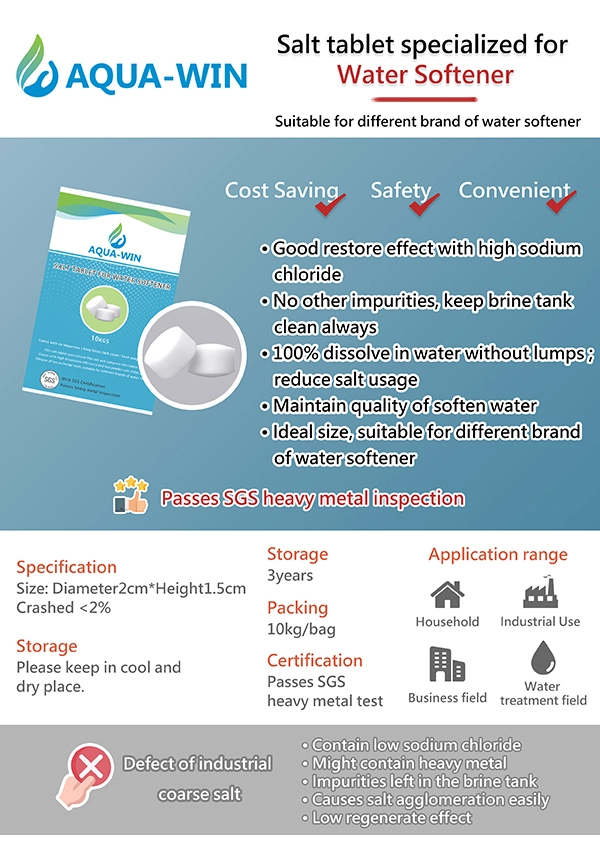FAQ-- Product Resources
What type of salt should I use in my water softener?
What type of salt should I use in my water softener?
Water softeners are essential for households and industries facing hard water issues. Hard water contains high levels of calcium and magnesium, which can cause scaling in pipes and reduce the efficiency of appliances. A water softener solves these issues by exchanging calcium and magnesium ions in the water with sodium ions, turning it into soft water.
Selecting the right type of salt for your water softener is essential for optimal performance and maintenance. Understanding the differences among these types will help you make the right choice.
1. Rock Salt
Salt mined from underground, contains a significant amount of insoluble minerals.
• Pros: Less expensive than other types of salts, making it an attractive option for budget-conscious consumers.
• Cons: The presence of insoluble minerals from rock salt can leave behind residues in the brine tank.
2. Table Salt
Also known as cooking salt, it is finely granulated sodium chloride used for culinary purposes.
• Pros: Easily accessible in most grocery stores.
• Cons: Contains additives like iodine and anti-caking agents, which are not ideal for water softeners.
3. Sodium Chloride (NaCl)
Commonly referred to as salt, is the most widely used substance in water softeners. It usually comes in pellets form, NaCl≧99.8%
• Pros: Sodium chloride is highly effective in the ion-exchange process, ensuring efficient removal of calcium and magnesium ions from the water. Compatible with most water softening systems.
• Cons: Adds sodium to the softened water, which may be a concern for individuals on low-sodium diets. An additional RO system is recommended to remove sodium for drinking purposes.
4. Sea Salt
Produced through the evaporation of seawater, it contains natural minerals and impurities.
• Pros: Derived naturally from seawater, retaining trace minerals.
• Cons: May contain more impurities than evaporated salt, potentially leading to some residue in the brine tank.
5. Potassium Chloride (KCl)
An alternative to sodium chloride for water softeners, it is derived from potassium-bearing minerals.
• Pros: Potassium chloride does not add sodium to the softened water, making it a healthier choice for individuals on low-sodium diets.
• Cons: It is slightly less efficient in the ion-exchange process, which might require more frequent regeneration cycles.







